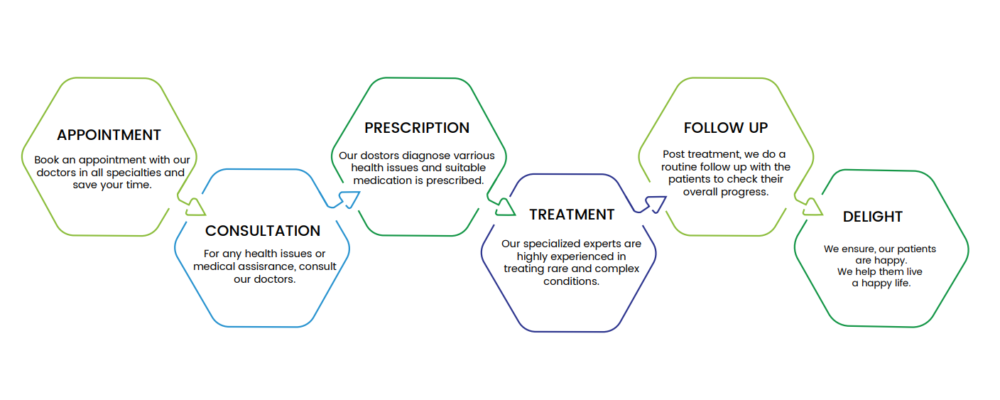Nephrology
Nephrology is a specialized branch of medicine focused on the diagnosis, treatment, and management of kidney diseases. Nephrologists, the medical doctors specializing in this field, are experts in understanding the complex functions of the kidneys, the diseases that can affect them, and the systemic impacts of kidney dysfunction. The kidneys play a crucial role in filtering waste products from the blood, maintaining fluid and electrolyte balance, and regulating blood pressure. Nephrology covers a broad range of conditions, from acute kidney injury (AKI) to chronic kidney disease (CKD) and end-stage renal disease (ESRD), as well as related issues like hypertension and electrolyte imbalances.
Functions and Importance of the Kidneys
The kidneys are vital organs with several critical functions essential for maintaining overall health:
- Filtration of Blood: The kidneys filter waste products and excess substances from the blood, which are then excreted in urine. This process helps maintain the body’s internal environment.
- Fluid and Electrolyte Balance: Kidneys regulate the balance of fluids and electrolytes, such as sodium, potassium, and calcium, which are crucial for normal cellular function and overall homeostasis.
- Blood Pressure Regulation: Through the renin-angiotensin-aldosterone system (RAAS), kidneys help control blood pressure by adjusting blood volume and the constriction of blood vessels.
- Erythropoiesis: Kidneys produce erythropoietin, a hormone that stimulates the production of red blood cells in the bone marrow, helping to prevent anemia.
- Acid-Base Balance: By excreting hydrogen ions and reabsorbing bicarbonate, kidneys maintain the body’s acid-base balance, essential for metabolic processes.
Common Kidney Diseases and Conditions
Nephrology encompasses a wide range of kidney diseases and conditions, each requiring specific diagnostic and therapeutic approaches:
- Chronic Kidney Disease (CKD): CKD is a long-term condition characterized by gradual loss of kidney function over time. Causes include diabetes, hypertension, and glomerulonephritis. Early detection and management are crucial to slow progression.
- Acute Kidney Injury (AKI): AKI is a sudden loss of kidney function, often due to severe dehydration, infection, medication toxicity, or trauma. It requires immediate medical attention to prevent permanent damage.
- Glomerulonephritis: This group of diseases involves inflammation of the glomeruli, the tiny filtering units in the kidneys. It can lead to proteinuria, hematuria, and progressive kidney damage.
- Nephrotic Syndrome: A condition characterized by high levels of protein in the urine, low levels of protein in the blood, swelling, and high cholesterol. It can result from various underlying diseases.
- Polycystic Kidney Disease (PKD): A genetic disorder causing the growth of numerous cysts in the kidneys, leading to enlarged kidneys and loss of function over time.
- Kidney Stones: Hard deposits of minerals and salts that form in the kidneys, causing severe pain, hematuria, and potential obstruction of urinary flow.
Diagnostic Techniques in Nephrology
Accurate diagnosis of kidney diseases involves a combination of clinical evaluation, laboratory tests, and imaging studies:
- Blood Tests: Measuring serum creatinine, blood urea nitrogen (BUN), and electrolytes helps assess kidney function and detect abnormalities.
- Urine Tests: Urinalysis can reveal the presence of protein, blood, and other substances in the urine, indicating kidney damage. 24-hour urine collections can measure total protein excretion.
- Imaging Studies: Ultrasound, CT scans, and MRI provide detailed images of the kidneys, helping to identify structural abnormalities, cysts, stones, and tumors.
- Kidney Biopsy: A biopsy involves taking a small sample of kidney tissue for microscopic examination, aiding in the diagnosis of glomerular diseases and determining the severity of damage.
- Glomerular Filtration Rate (GFR): GFR is a key indicator of kidney function, calculated using serum creatinine levels and other factors like age, gender, and body size.
Treatment and Management of Kidney Diseases
Treatment strategies in nephrology aim to manage symptoms, slow disease progression, and improve quality of life:
- Medications: Depending on the condition, nephrologists may prescribe antihypertensives, diuretics, immunosuppressants, or medications to manage diabetes and cholesterol levels.
- Diet and Lifestyle: Dietary modifications, such as reducing sodium, potassium, and protein intake, can help manage CKD and other kidney conditions. Maintaining a healthy lifestyle with regular exercise and avoiding smoking and excessive alcohol is crucial.
- Dialysis: For patients with ESRD, dialysis (hemodialysis or peritoneal dialysis) is required to perform the filtering functions of the kidneys artificially.
- Kidney Transplantation: For suitable candidates with ESRD, a kidney transplant can offer a long-term solution by replacing the diseased kidney with a healthy donor kidney.
- Management of Comorbid Conditions: Controlling diabetes, hypertension, and other related conditions is vital for preventing or slowing the progression of kidney disease.
Why Choose Medhelp International for Nephrology Services?
Medhelp International is renowned in Islamabad for its excellence in Nephrology care, and for good reasons:
Expert Nephrologists: Our team consists of highly skilled and experienced Nephrologists who specialize in diagnosing and treating a wide range of kidney-related issues. They are dedicated to staying updated with the latest advancements in Nephrology to ensure the best care for our patients.
State-of-the-Art Facilities: We have invested in modern technology and advanced diagnostic equipment to provide accurate evaluations and efficient treatment options. Your kidney health deserves nothing but the best.
Comprehensive Services: At Medhelp International, we offer a wide range of nephrology services, including:
- Kidney Health Check-ups: Regular kidney check-ups are crucial for early detection and prevention of renal issues.
- Hypertension and Kidney Care: We specialize in managing high blood pressure and its impact on kidney health.
- Kidney Disease Management: Whether you are dealing with kidney stones, chronic kidney disease, or kidney infections, we offer comprehensive management.
- Dialysis Services: For patients with advanced kidney disease, we provide state-of-the-art dialysis services.
- Kidney Transplantation: We have a dedicated team for kidney transplantation, ensuring a seamless process for those in need of a new kidney.
Patient-Centric Approach: At Medhelp International, we prioritize our patients’ concerns and well-being. Our team ensures that you receive personalized, compassionate care, and we are dedicated to your comfort and peace of mind throughout your nephrology journey.
Nephrology Care for Everyone
We believe that kidney health is vital for everyone’s overall well-being, regardless of age or gender. Kidney issues do not discriminate, and neither do we. Our services are accessible to all individuals, men and women alike, because kidney health is a universal concern. Our experienced Nephrologists, state-of-the-art facilities, and patient-focused approach make us the top choice for nephrology services in Islamabad. Don’t wait to address your kidney health concerns – reach out to us today for a comprehensive evaluation and personalized care.


Medhelp International Process


